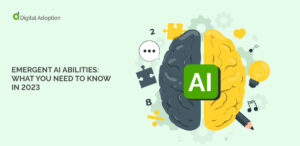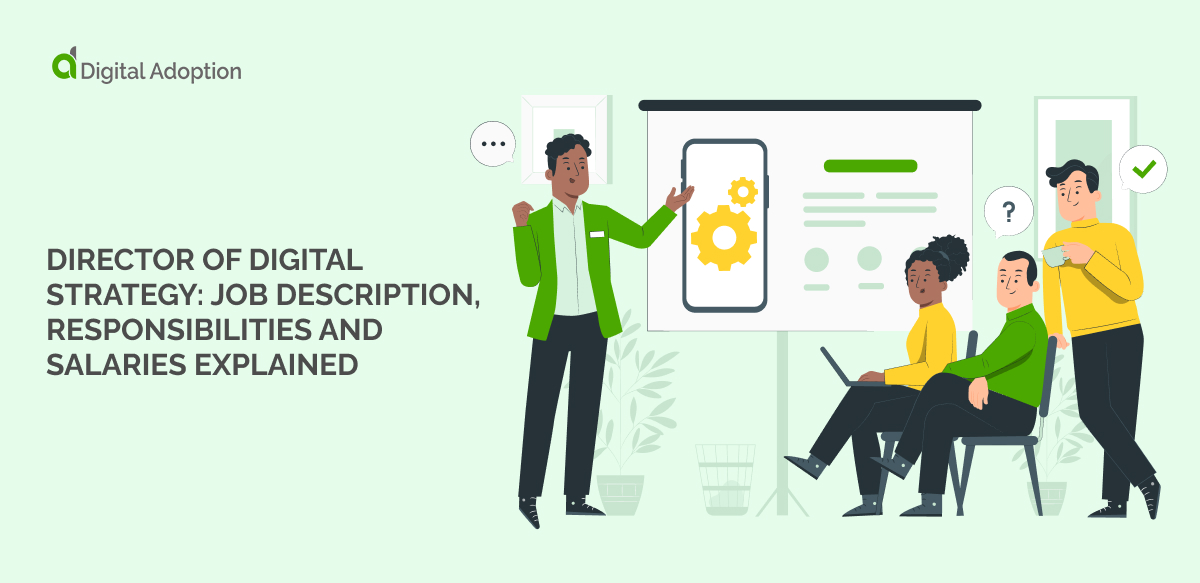What does digital transformation actually mean for your organization? Digital transformation quotes and definitions can offer us some insight.
In this article, we will clarify what digital transformation means by looking at some of the most common quotes and definitions.
Digital Transformation Quotes
Here is a selection of quotes from various websites, authors, and industry leaders.
Each one has their own unique take on what digital transformation means:
“Digital transformation is the integration of digital technology into all areas of a business, fundamentally changing how you operate and deliver value to customers. It’s also a cultural change that requires organizations to continually challenge the status quo, experiment, and get comfortable with failure.”
The Enterprisers Project
“Digital transformation is a foundational change in how an organization delivers value to its customers. Here is what transformation truly entails, along with tips to ensure your company is on the correct course.”
Clint Boulton, via CIO.com
“Digital Transformation is application of digital capabilities to processes, products, and assets to improve efficiency, enhance customer value, manage risk, and uncover new monetization opportunities.”
Bill Schmarzo, via CIO.com
“Digital Transformation (DT or DX) is the use of new, fast and frequently changing digital technology to solve problems often utilising cloud computing, reducing reliance on user owned hardware but increasing reliance on subscription based cloud services.”
Wikipedia
“Digital transformation is the process of using digital technologies to create new — or modify existing — business processes, culture, and customer experiences to meet changing business and market requirements. This reimagining of business in the digital age is digital transformation.”
Salesforce
“Digital transformation refers to the incorporation of digital technology across all areas of a business, changing how the business operates.”
Jonas DeMuro, via TechRadar
“Digital transformation is the changes associated with digital technology application and integration into all aspects of human life and society. It is the move from the physical to digital.”
Techopedia
“Digital transformation involves using digital technologies to remake a process to become more efficient or effective. The idea is to use technology not just to replicate an existing service in a digital form, but to use technology to transform that service into something significantly better.”
Mark Samuels, via ZDNet
“Digital transformation refers to the process and strategy of using digital technology to drastically change how businesses operate and serve customers. The phrase has become ubiquitous in the age of digitization. That’s because every organization – regardless of its size or industry – increasingly relies on data and technology to operate more efficiently and deliver value to customers.”
SAS
“Digital transformation is the evolving pursuit of innovative and agile business and operational models — fueled by evolving technologies, processes, analytics, and talent — to create new value and experiences for customers, employees, and stakeholders.” –
Brian Solis
Though certain details vary from definition to definition, they all focus on the same underlying themes.
Let’s explore some of those takeaways below:
What Types of Changes Are Involved with Organizational Transformations?
There are a few common themes that reoccur in any definition of digital transformation.
In the quotes above, these themes included:
- Improving business process efficiency. Digital technology can improve the efficiency of business processes in many ways. Automation tools, online collaboration tools, and analytics are just a few digital technologies that can improve business efficiency.
- Enhancing customer value. The customer experience has become a centerpiece for many organizations today. Good experiences can actually become competitive differentiators, which is why customer success has become the focus of many digital transformation efforts.
- Managing risk. Though digital transformation can deliver significant value to an organization, organizational change always comes with risk. Likewise, not adapting to the changing marketplace also carries risk. Every business today must weigh both sides of the equation – the risk of changing versus the risk of not changing.
- Modifying organizational culture. In many cases, digital transformations run so deep that an organization must modify its very culture. A business that wants to stay modern and relevant would cultivate a culture that is centered around innovation, continuous learning, digital literacy, and adaptability.
- Transforming products, services, and delivery. Digital transformation can also help businesses transform the very products and services that they offer. For software businesses, this is only natural. But digital transformation can and does affect many industries. From healthcare to finance, virtually every industry will need to modify the way it delivers solutions to its customers.
- Changing or modifying the organization’s strategy. In other cases, organizations will need to change their fundamental business model. When the very economic landscape is changing, businesses should make whatever adaptations are necessary in order to stay relevant and competitive.
- Digitizing the workplace. A streamlined digital workplace is one where employees work seamlessly with their tools. “Fully digitized” organizations have modern business practices, use modern tools, and have a workforce that is proficient and productive with those tools.
Ultimately, the nature of any business change will vary from business to business.
However, the underlying theme remains constant: organizational changes that are driven by technology.













